JAGGERY
JAGGERY
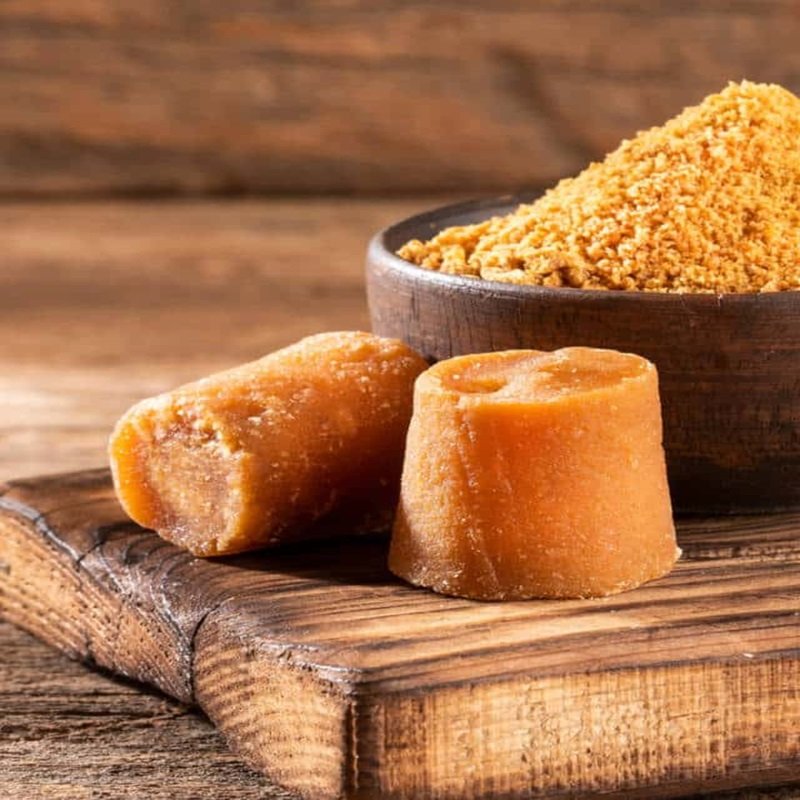
JAGGERY
ขอเครดิตฟรีหน่อยครับสมัครปุ๊บรับปั๊บไม่ต้องฝากJaggery is a traditional, unrefined sweetener made from sugarcane or palm sap. Unlike refined sugar, jaggery retains the natural molasses content, giving it a rich, caramel-like flavor and a dark golden to brown color. Jaggery is often used in desserts, beverages, and savory dishes, and is also valued for its health benefits, such as aiding digestion, boosting energy, and acting as a natural remedy for coughs and colds. Its traditional production methods and minimal processing make jaggery a more wholesome alternative to refined sugar.
Types of Jaggery Products We offer!
Black Jaggery
Black jaggery, also known as Kala Gur, is a traditional form of jaggery that is darker in color and richer in flavor compared to regular jaggery. Made from sugarcane juice or palm sap, black jaggery undergoes minimal processing, retaining its natural molasses content. This gives it a deep, robust taste with earthy undertones. It is highly valued for its health benefits, as it is packed with minerals like iron, magnesium, and calcium, making it a popular choice for boosting energy, improving digestion, and promoting overall wellness. Black jaggery is often used in traditional sweets, beverages, and even as a natural remedy in Ayurvedic medicine. Its unique flavor and nutritional properties make it a favored alternative to refined sugars.
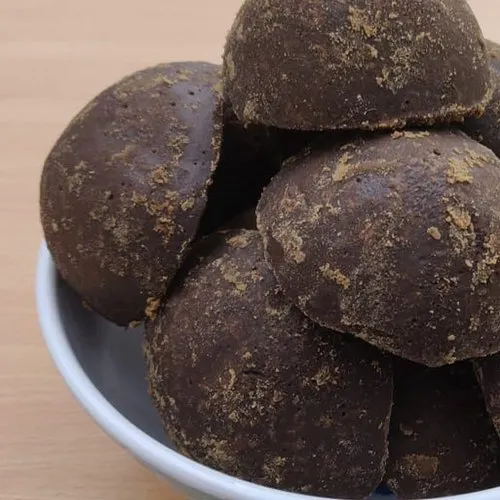
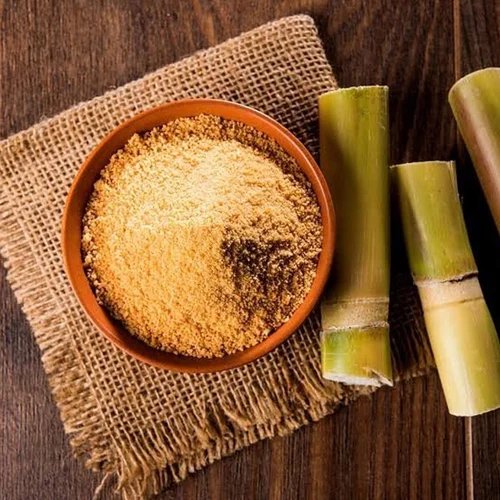
Cane Jaggery
Cane jaggery is a natural sweetener made from the juice of sugarcane. It is traditionally produced by boiling the sugarcane juice until it thickens and solidifies into a block or cake form. Unlike refined sugar, cane jaggery retains its molasses content, which gives it a golden to dark brown color and a rich, caramel-like flavor. Cane jaggery is a popular ingredient in South Asian and African cuisines, used in sweets, desserts, and beverages. Beyond its sweetening properties, it is known for its health benefits. It is rich in iron, making it a good choice for boosting hemoglobin levels, and contains other essential minerals like magnesium and potassium. Cane jaggery is also believed to aid digestion, detoxify the liver, and provide a quick energy boost.
Coconut Jaggery
Coconut jaggery, also known as Palm Jaggery, is a natural sweetener made from the sap of coconut palm trees. It is a traditional, unrefined sugar that is darker in color and has a distinctive, rich flavor with hints of caramel and coconut. The process of making coconut jaggery involves boiling the sap until it thickens and solidifies into a dense block. Coconut jaggery is valued not only for its unique taste but also for its nutritional benefits. It is rich in essential minerals like iron, magnesium, and potassium, making it a healthier alternative to refined sugar. Additionally, it has a low glycemic index, which means it releases energy slowly and helps regulate blood sugar levels. Coconut jaggery is widely used in South Asian and Southeast Asian cuisines, particularly in desserts, sweets, and traditional dishes.
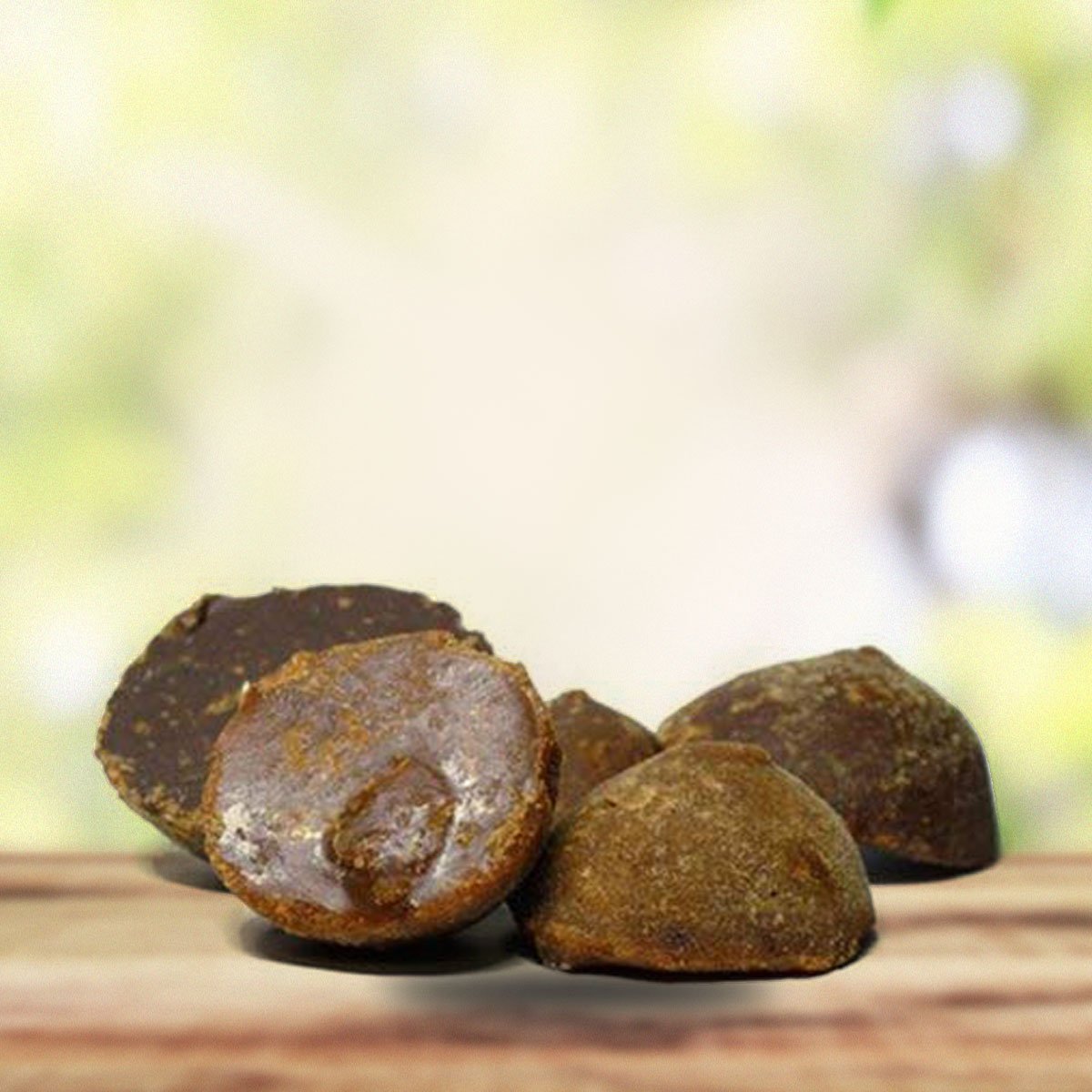
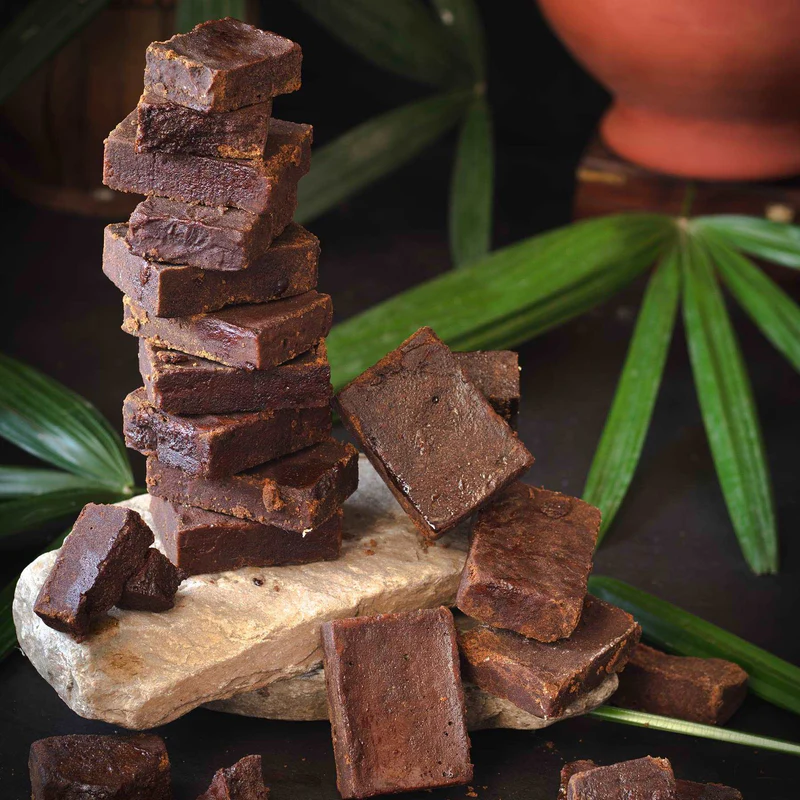
Date Palm Jaggery
Date palm jaggery, also known as Date Jaggery, is a natural sweetener made from the sap of the date palm tree. It is a traditional and unrefined form of sugar that is produced by boiling the date palm sap until it thickens and solidifies. The resulting jaggery has a rich, deep flavor with caramel and date-like undertones. Date palm jaggery is prized for its unique taste and nutritional benefits. It is rich in essential minerals such as iron, calcium, magnesium, and potassium, which contribute to its health benefits, including improved digestion, increased energy levels, and better bone health. Additionally, it is known for its low glycemic index compared to refined sugar, making it a better option for those managing blood sugar levels.
Palmyra Palm Jaggery
Palmyra palm jaggery, also known as Palmyra Jaggery or Palmyra Palm Sugar, is a traditional sweetener made from the sap of the palmyra palm tree. The production process involves collecting the sap from the tree's flower buds and boiling it down until it thickens and solidifies into a block or cake form. Palmyra palm jaggery has a distinctive flavor with a slightly earthy and caramel-like taste. It is valued for its natural sweetness and rich mineral content. It contains essential nutrients such as iron, calcium, magnesium, and potassium, which contribute to its health benefits. This jaggery is often used in South Asian and Southeast Asian cuisines, particularly in desserts, sweets, and traditional dishes.
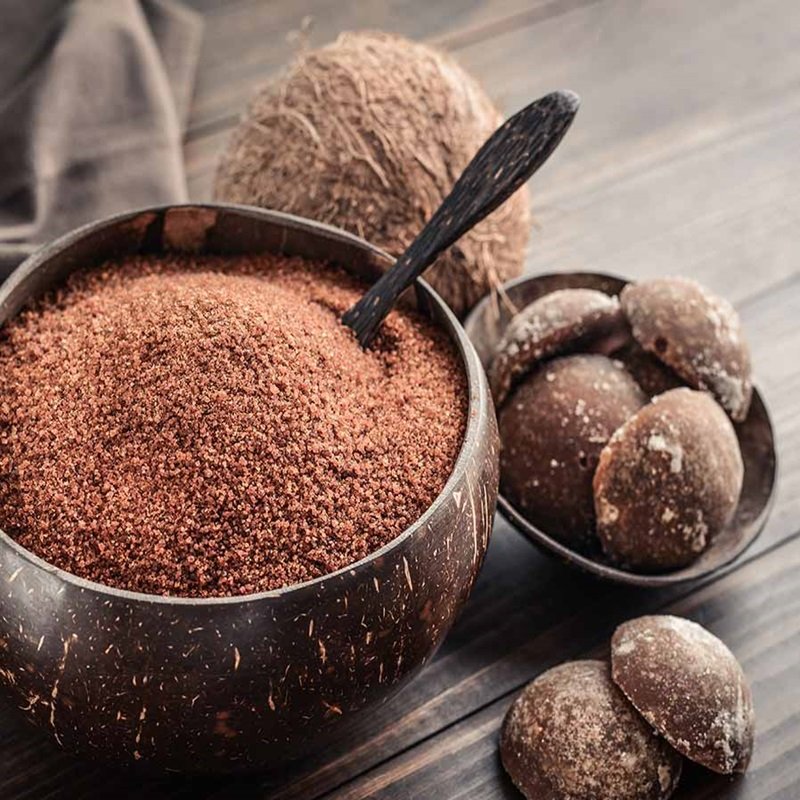
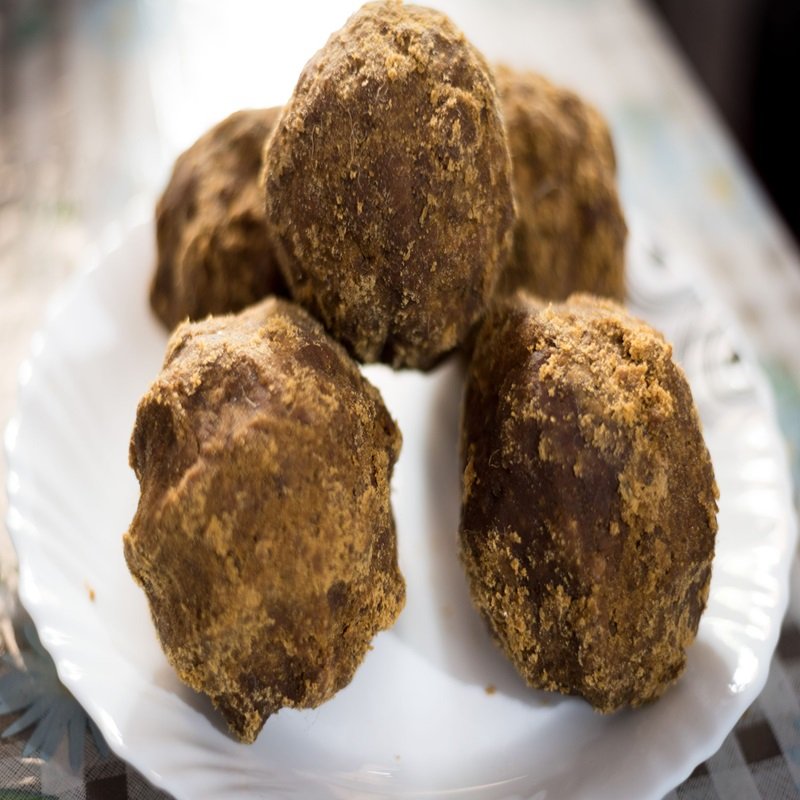
Marayoor Jaggery
Marayoor jaggery, produced in the Marayoor region of Kerala, India, is a highly prized variety known for its distinctive flavor and quality. Made from sugarcane sap, it is traditionally prepared by boiling the sap until it solidifies into blocks or cakes. This jaggery has a rich, caramel-like taste and a dark brown to deep amber color, reflecting the traditional methods and unique sugarcane varieties used. It is valued not only for its unique flavor but also for its nutritional benefits, including essential minerals like iron, calcium, magnesium, and potassium. Marayoor jaggery is commonly used in Kerala cuisine for making sweets, desserts, and various traditional dishes, offering a natural and wholesome alternative to refined sugars.
Natural, Herbal and Organic Jaggery
Natural, herbal, and organic jaggery represent different approaches to producing this traditional sweetener with an emphasis on purity and health benefits. Natural jaggery is made from sugarcane or palm sap using traditional methods without chemicals, preserving its rich flavor and nutritional content. Herbal jaggery incorporates herbs like turmeric or ginger during production, adding medicinal properties to enhance digestion and immunity. Organic jaggery is produced from sugarcane or palm sap grown without synthetic pesticides or fertilizers, ensuring a chemical-free and environmentally sustainable product. Each type offers a wholesome alternative to refined sugars, catering to varying health and environmental preferences.
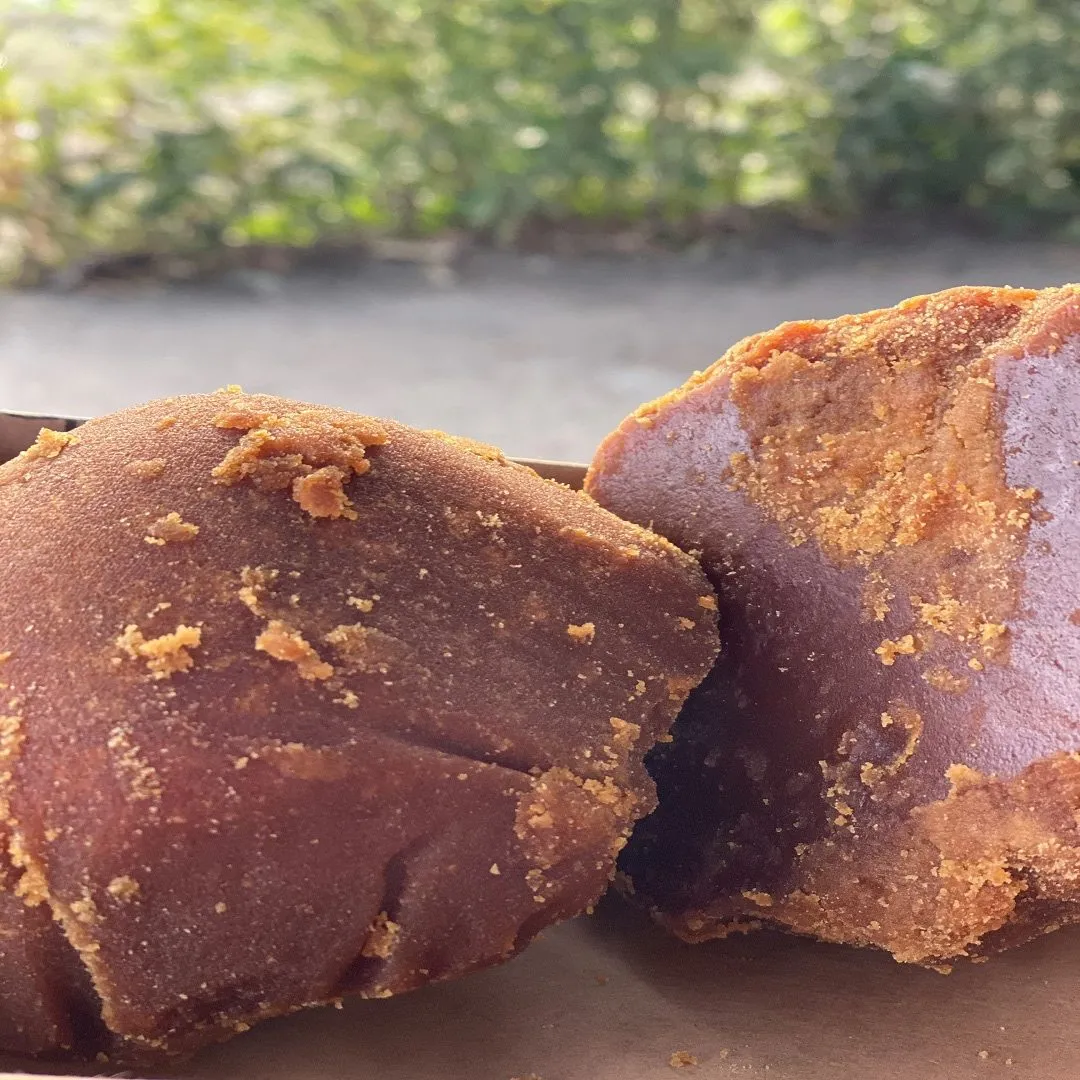

.png)
